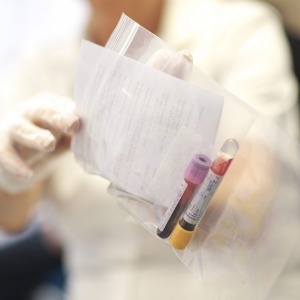GPs are ordering three times as many diagnostic tests as they did 15 years ago, a study has found.
Researchers estimate GPs are now spending up to two hours a day reviewing test results, pushing GP workload to ‘saturation point’.
The researchers suggest reasons for the hike in diagnostic tests are related to GPs providing more services than they did 15 years ago, including more long-term conditions monitoring.
The study, led by researchers from the University of Oxford, looked at data for around 250m tests that were ordered by GPs between 2000/01 and 2015/16.
It concluded that:
- The age and sex-adjusted rate of total test use increased from 14,869 tests per 10,000 person years in 2000/01 to 49,267 in 2015/16.
- In 2015/16, patients had on average five tests per year compared to 1.5 per year in 2000/01.
- The annual rate of test use increased significantly after the introduction of QOF in 2004 and this rate was highest in over-85s, increasing by nearly 6% between the introduction of QOF and 2015/16.
- Renal function, full blood count and liver function tests were the most ordered tests throughout the study, with vitamin D tests, knee MRI and pelvic CT showing the greatest increases after the introduction of QOF.
- Overall, around 90% of the specific tests looked at in the study saw increases in use during the study period.
As a result, researchers estimate that the average GP ‘spent 1.5 to two hours reviewing test results each workday in 2015/16’, which they said was ‘more than threefold increase from the estimated 2000/01 figure of 25 to 35 minutes daily’.
The paper said: ‘Our results support other evidence that suggests general practice workload in the UK is reaching saturation point.’
The researchers suggested policymakers use the study results to ‘assess trends in the use of tests’ and as ‘guidance for future healthcare resource planning’.
RCGP chair Professor Helen Stokes-Lampard said: ‘GPs are in an incredibly difficult position when it comes to making referrals or ordering blood tests and other investigations, in that we get criticised when we do, and criticised when we don’t. Ultimately, our priority is to our patients and we will work in their best interests.
‘This research looks at the increase of number of requests for tests GPs make, but not the reasons why and whether they were appropriate – and both of those must be key when making a judgement about whether an increase is positive, or not.’
BMA GP Committee chair Dr Richard Vautrey said: ‘This rapid change, with practices now doing a lot of clinical activity that was traditionally done in hospitals, has had a major impact on workload as it has not been matched by the necessary increase in resources, and therefore the Government should recognise this by addressing this in their forthcoming long-term plan for the NHS.’
BMJ 2018; available online 28th November
Pulse October survey
Take our July 2025 survey to potentially win £1.000 worth of tokens















